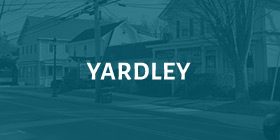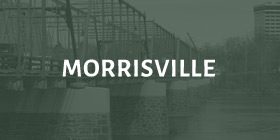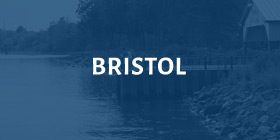Neighbors

Neighbors Are Nice
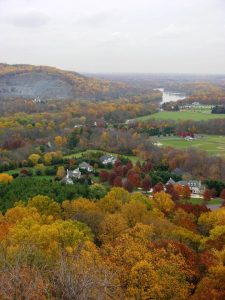 Landmark Towns of Bucks County is a program focused on the wonderful assets found in these four towns of New Hope, Yardley, Morrisville and Bristol. But as visitors wander between these communities, they will encounter a variety of small villages and historical sites that should not be missed.
Landmark Towns of Bucks County is a program focused on the wonderful assets found in these four towns of New Hope, Yardley, Morrisville and Bristol. But as visitors wander between these communities, they will encounter a variety of small villages and historical sites that should not be missed.
For example, the business establishments in Washington Crossing offer a respite for visitors of the three sections of the Washington Crossing Historical Park and the Washington Crossing Bridge gives visitors access to the Delaware and Raritan Canal in New Jersey. Bowman’s Hill Wildflower Preserve is a remarkable treasure that you do not want to miss, located between New Hope and Washington Crossing.
We also have partners who may not be located physically in the Landmark Towns but they impact the communities by servicing a larger geographically. Several of these entities are county-wide.
So we welcome our Bucks County neighbors to the Landmark Towns website so our visitors don’t miss the gems between the Landmark Towns.
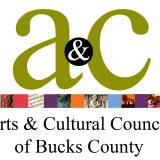
Arts & Cultural Council of Bucks County
- Address & Phone
- Department of the Arts Bucks County Community College • 275 Swamp Road • Newtown, PA 18940 • 215.968.8229

Arts & Cultural Council of Bucks County
- Address & Phone
- Department of the Arts Bucks County Community College • 275 Swamp Road • Newtown, PA 18940 • 215.968.8229
- Website
- www.bucksarts.org
Arts and culture in Bucks County are critical to our lives and our local economy, and are a crucial part of our history and future. The mission of the Arts & Cultural Council of Bucks County is to foster, strengthen and promote Bucks County’s diverse arts and culture, thereby contributing to a more vibrant community.
The Arts & Cultural Council of Bucks County supports the arts and artists throughout Bucks County. Consequently, they can be found supporting the many arts and cultural events in the Landmark Towns.
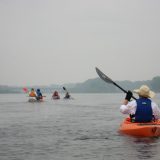
Bucks County River Country
- Address & Phone
- 2 Walters Lane • Point Pleasant, PA 18950 • 215-297-5000

Bucks County River Country
- Address & Phone
- 2 Walters Lane • Point Pleasant, PA 18950 • 215-297-5000
- Website
- www.rivercountry.net
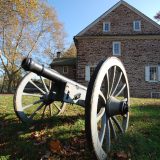
Washington Crossing Historic Park
- Address & Phone
- 1112 River Road • Washington Crossing, PA 18977 • 215-493-4076

Washington Crossing Historic Park
- Address & Phone
- 1112 River Road • Washington Crossing, PA 18977 • 215-493-4076
- Website
- www.washingtoncrossingpark.org
Washington Crossing Historic Park offers more than 500 acres of American history, natural beauty and family fun. The park preserves the site where George Washington crossed the Delaware River and turned the tide of the Revolutionary War.
There is always something happening at Washington Crossing Historic Park. Please join us for one of our many special events.
But Washington Crossing Historic Park represents much more than a single event. Restored Colonial buildings in the park, such as the Thompson-Neely House and McConkey Ferry Inn, give many clues about living conditions during the Revolutionary era. Later, homes and shops reveal how 19th-century rural Pennsylvanians lived and worked. Among them are the home of a prosperous merchant, a village general store, and homes for skilled artisans. The park also contains Bowman’s Hill Tower, Revolutionary War soldiers’ graves, stone memorials, picnic pavilions and historic collections.
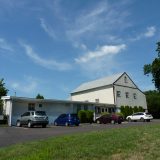
The David Library of the American Revolution
- Address & Phone
- 1201 River Road • Washington Crossing, PA 18977 • 215-493-6776

The David Library of the American Revolution
- Address & Phone
- 1201 River Road • Washington Crossing, PA 18977 • 215-493-6776
- Website
- www.dlar.org
The David Library of the American Revolution is a specialized research library dedicated to the study of American history circa 1750 to 1800. We are open to the public Tuesday through Saturday, 10:00 am – 5:00 pm, admission free. The David Library is a non-profit educational institution. Our mission is the collection and dissemination of information on this early period of American history, and the support of related educational programs and scholarly research.
The David Library was founded in 1959 by Sol Feinstone (1888 – 1980), a businessman, philanthropist and collector of Americana. He named the Library in honor of his grandson David Golub who was born developmentally disabled. In order to secure the future of the foundation he established, Mr. Feinstone donated to the institution his extensive collection of Revolutionary war manuscripts, his 118-acre farm on which the Library and auxiliary buildings are situated, and an endowment. In 1974, the present Library building was built and opened to the public.
Two things set the David Library apart from every other research institution that has materials on the American Revolution: concentration and convenience. Here you will find almost all the basic primary sources on the Revolution, including materials, such as many documents microfilmed at the British Archives, found no where else in this country. And you will find this material in one building, serviced by a small but highly knowledgeable staff that has no other objective than to assist its users in learning about the broad era of the American.
Don’t miss the speakers series held throughout the year. Details on the website.
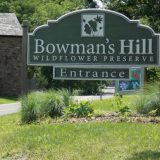
Bowman’s Hill Wildflower Preserve
Bowman’s Hill Wildflower Preserve is a non-profit 501(c)(3) organization that showcases an extraordinary diversity of plants native to Pennsylvania and the Delaware Valley region. They care for and protect our native plant collection with the goal of encouraging the public to visit, enjoy, and learn about the richness of Pennsylvania’s natural heritage.
Of the approximately 2,000 species native to Pennsylvania, the Preserve is home to nearly 800 of them. More than 80 of these species are rare, threatened or endangered native plants designated as Plants of Special Concern in Pennsylvania. A deer exclosure fence surrounds and protects 100 of our 134 acres. Over two and a half miles of picturesque trails offer some of the best hiking in all of Bucks County.
You’re invited to learn more about our unique plant collection and the wealth of birds, butterflies, and other wildlife that it supports. Educational programs run year- round. Take our virtual tour of seasonal highlights, take advantage of our online native plant resources, and plan a visit!
Hours and Admission
Bowman’s Hill Wildflower Preserve is open year-round.
The Visitor Center (including Twinleaf Shop) is open daily in April, May and June, 9a.m. – 5p.m. From July through December, open Tuesday – Sunday (closed Mondays), 9a.m. – 5p.m.
The Preserve is OPEN on the following Monday holidays: Memorial Day and Labor Day
The Preserve is CLOSED the following holidays: Thanksgiving Day and Christmas Eve through New Years (12/24 – 1/1).
Admission Fees
Members: Free
Adults: $6.00
Seniors (65 and older): $4.00
Fulltime students (with ID): $4.00
Children (3 through 14): $3.00
Children under 3: Free
Admission includes a Guided Wildflower Walk, offered Tuesday thru Sunday, at 2:00 p.m. from April – October.
Educational program fees include admission to the Preserve.
Admission revenue directly supports the operating expenses of the Preserve.
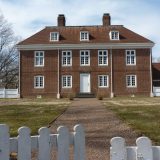
Pennsbury Manor
- Address & Phone
- 400 Pennsbury Memorial Road • Morrisville, PA 19067 • 215-946-0400

Pennsbury Manor
- Address & Phone
- 400 Pennsbury Memorial Road • Morrisville, PA 19067 • 215-946-0400
- Website
- www.pennsburymanor.org
Welcome to Pennsbury Manor, a living history museum
William Penn knew what he wanted. “A country life and estate I like best for my children.” By the spring of 1683 construction was underway on Penn’s home in the country. Today, his recreated 17th century estate sits on 43 picturesque acres along the Delaware River. Come for a visit and experience colonial life at Penn’s country home. Take a guided tour, explore our award-winning exhibit, learn more about one of America’s most famous Quakers. Bring the family for a stroll down by the river and enjoy fun family activities. Experience colonial craft demonstrations and daily life as it existed 300 years ago. The past is waiting for you!
Pennsbury Manor is closed on Mondays. We are open Tuesday through Saturday from 9:00 am – 5:00 pm and Sundays from 12:00 pm – 5:00 pm. Admission to Pennsbury Manor includes entrance to the exhibit, William Penn: Seed of a Nation, an orientation video, and a guided tour of William Penn’s Manor House and Kitchen House. (Self-guiding tour options are available but you must be on a guided tour to see the inside of the Manor House.) Guided tours are available Tuesday through Saturday and last approximately 1 ½ hours.
On Sundays, April through October, special activities and programs allow you and your family to explore the site at your own pace. Tours of the Manor House are included and scheduled throughout the day. Check our calendar of events to find out what’s happening each week.
Tours are offered as follows:
March 1 – October 31
Sunday : 12:30 pm, 1:30 pm, 2:30 pm, and 3:30 pm
Tuesday – Saturday: 11:30 am, 1:30 pm, and 3:30 pm
November 1 – December 31
Sunday: 12:30 pm and 2:30 pm
Tuesday – Saturday: 11:30 am and 1:30 pm
Pennsbury Manor is closed from January 1 through February 28. Guided tours are available by appointment. Please call 215-946-0400 to schedule your tour.
Adult – $9.00
Senior (65+) – $7.00
Reduced (group tours and AAA) – $7.00
Youth (3 – 11) – $5.00
Limited Visit – $3.00 – no guided tour or entrance into the buildings (Not available on Sundays April throught October)
Active Military – Free
Your receipt from Pennsbury Manor is good towards reduced adult admission at any of the Pennsylvania Historical and Museum Commission (PHMC) historic sites and museums listed on the Pennsylvania Trial of History website.

